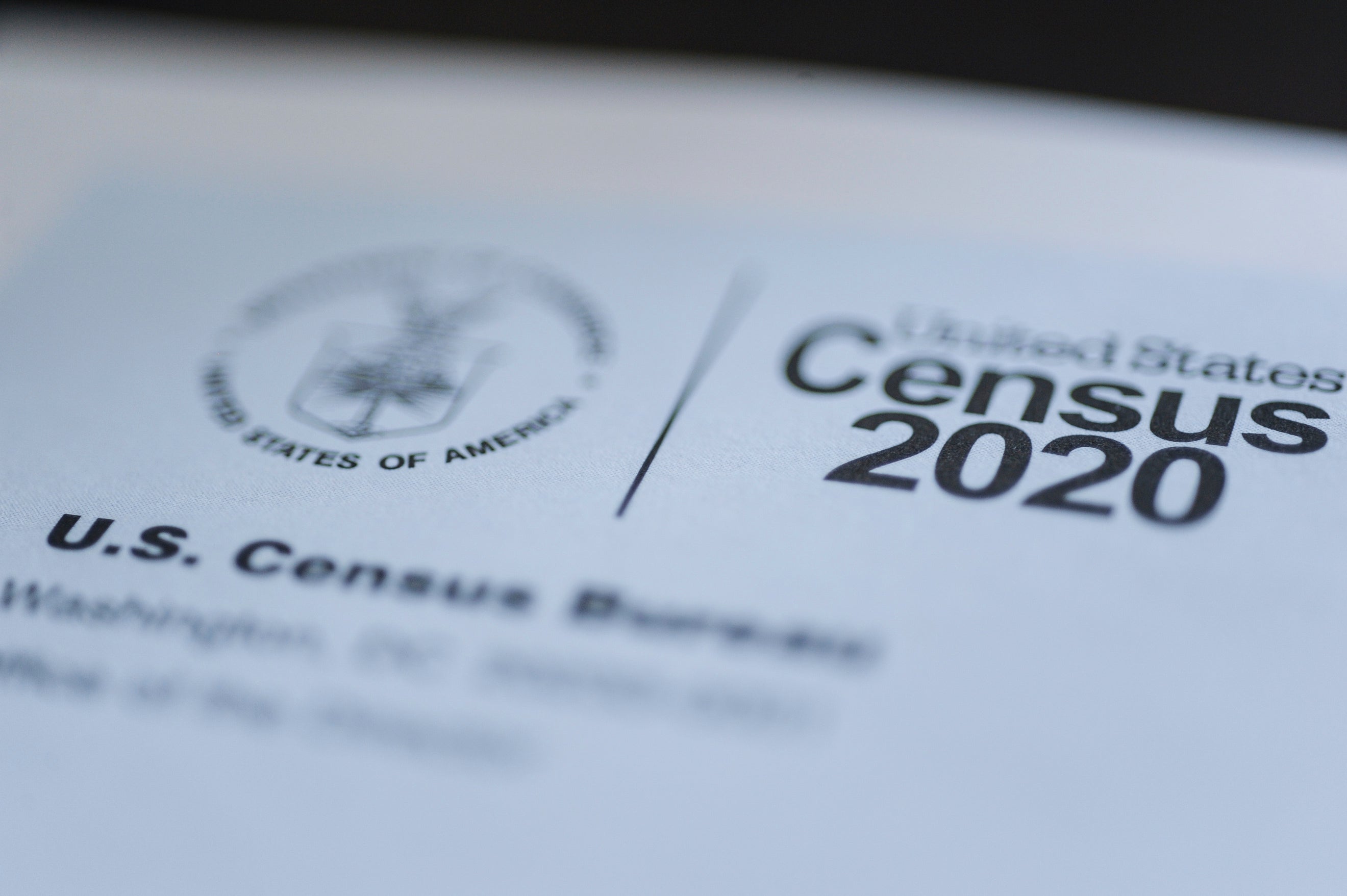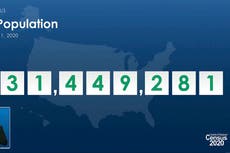US Census: America’s population is more multiracial and diverse than ever before
US population growth slowed to its second-slowest rate, but multiracial growth and metro areas outpaced the nation’s population increase over the last decade

The results of the once-a-decade survey of American households reveal the most-detailed picture yet of the state of the nation’s population, providing a trove of demographic information used to redraw voting districts and inform lawmakers and policy-informing research over the next 10 years.
US Census results from the controversial 2020 survey show population growth fuelled largely by Hispanic and Asian populations, with the nation’s non-Hispanic white population dropping below 60 per cent for the first time.
While white people make up the largest population share, at 57.8 per cent, the nation’s non-Hispanic white population declined by 8.6 per cent since the agency’s 2010 count. Overall, more than 235 million people reported white alone or in combination with another group in the survey.
The nation’s multiracial population was measured at 9 million people in 2010 – it spiked to nearly 34 million in the 2020 count, marking a 276 per cent increase. Multiracial populations account for most of the changes in each race category.
Those changes may not necessarily reflect a surge in population growth but in how survey respondents list other races following changes to the questionnaire.
“As the country has grown, we have continued to evolve in how we measure the race and ethnicity of the people who live here,” said Nicholas Jones, the agency’s director and senior adviser for race and ethnicity research and outreach.
Changes in how the survey allows people to report their ethnicity “yield a more accurate portrait of how people self-identify in response to two separate questions on Hispanic origin and race, revealing that the US population is much more multiracial and more diverse than what we measured in the past,” he said in a statement.
The nation’s population has reached 331,449,281 – a 7.4 per cent increase from the 2010 census. It is also the second-slowest population growth in US history, slightly above the growth between 1930 and 1940 in the decade following the Great Depression.
But the Census data reveals a growing US population largely fuelled by metropolitan areas, with all ten of the nation’s most populous areas seeing population spikes.
More than half of all US counties had a smaller population in 2020 than in 2010, while cities have grown faster than the nation as a whole, seeing metro area growth by 8.7 per cent from 2010.
Three Texas cities – Houston, Dallas and San Antonio – are among the nation’s 10 largest; the top five are now New York, Los Angeles, Chicago, Houston and Phoenix, knocking Philadelphia from the fifth-largest into the sixth-largest. Phoenix saw the largest growth among the nation’s top 20 largest cities with a population spike of 9.4 per cent from 2010.
Complications, including performing the survey in the midst of the coronavirus pandemic that has upended American life, have likely shaped data that will be instrumental to the future of American democracy over the next decade.
The 2020 Census may include an undercount of communities of colour, and Donald Trump’s failed attempt to add a citizenship question and exclude undocumented immigrants and end counting early may have had a chilling effect in participation.
The bureau’s acting director Ron Jarmin said that “the data we are releasing today meet our high data quality standards, and I am proud to present them to the American public”.
He said it is too early to determine over- and undercounting, with granular data to be released in 2022.
The survey also does not reflect the deaths of more than 600,000 people who died after 1 April 2020 from Covid-19.
Join our commenting forum
Join thought-provoking conversations, follow other Independent readers and see their replies
Comments

Bookmark popover
Removed from bookmarks